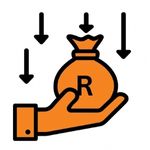
For many South Africans, managing money on a low income can be challenging, especially with rising everyday costs. However, with the right strategies and consistent habits, it is possible to reduce financial pressure and build some savings. Saving is not only about earning more but about using your current income wisely. Whether you are supporting a household or trying to manage debt, practical steps like budgeting, cutting unnecessary expenses, and boosting your income slightly can help improve your financial situation.
Key Takeaways
- Budgeting Is The Starting Point: Creating a realistic budget tailored to your income and expenses helps you take control of your finances and avoid unnecessary shortfalls. Tracking every rand gives you a clearer view of where adjustments can be made.
- Cut Costs And Prioritise Savings: Reducing non-essential spending, cancelling unused subscriptions, and tackling high-interest debt can help stretch your income. Even small monthly savings in a high-interest account can grow over time.
- Boost Income And Avoid Costly Mistakes: Earning extra through side work and avoiding common errors like overspending or taking on unnecessary debt are key to improving your financial stability. Selling unused items and investing early can also support long-term goals.
About Arcadia Finance
Arcadia Finance makes borrowing simple. Skip application fees, compare offers from 19 reputable NCR-approved lenders, and get matched with the right loan quickly.
Why Creating A Budget Matters
Establishing a clear budget allows you to manage your money with greater control and make informed financial choices that support your long-term stability and that of your household. Many South Africans come to realise that trying to manage monthly spending without a proper budget often results in overspending and financial pressure. A budget should reflect your actual monthly expenses and be structured around how much of your income is allocated to different spending areas.
Begin by writing down all necessary monthly expenses. This includes fixed costs such as rent, internet fees, and gym contracts, along with variable expenses like groceries, commuting, and entertainment. Once you have identified these costs, determine what portion of your monthly income is reasonable to assign to each category. This will help you keep your finances on track and avoid shortfalls.

How To Budget With A Low Income

Monitor Your Income And Track Spending Closely
Managing a limited income begins with gaining a full picture of your financial activity. Set up a structured budget that outlines your exact income sources, whether from employment, informal work, social grants, or side income. Break down your monthly expenses into key categories, including housing, groceries, transport, electricity, water, and any recurring financial obligations.
By clearly mapping out what you earn and where the money goes each month, you can take control of your finances. This gives you the ability to assess where changes can be made and helps you plan with more confidence. For South Africans earning on the lower end of the scale, this approach lays the groundwork for better financial stability.

Make the Most of Discounts and Free Services
Saving on a low income is not only about cutting costs but also about getting more value from what you spend. In South Africa, loyalty programmes and free community resources can make a big difference.
Retailers like Pick n Pay Smart Shopper, Clicks ClubCard, Checkers Xtra Savings, and Woolworths WRewards offer free loyalty cards that provide discounts, cashback, or points. Banks and mobile networks also run rewards schemes, such as FNB eBucks, Standard Bank UCount, and Vodacom VodaBucks, which can be redeemed for essentials, airtime, or fuel. The trick is to use them on purchases you already need, not to spend extra for points.
Public libraries offer free books, study materials, and sometimes internet access, while community centres host free workshops and training sessions. Many cities hold free markets, concerts, art exhibitions, and cultural festivals. Parks, hiking trails, and beaches also provide affordable leisure options.
Making the most of these discounts and free services helps you stretch your budget while still enjoying life.

Identify And Eliminate Non-Essential Spending
Take time to review your regular purchases and find areas where you may be spending more than necessary. This might include fast food, streaming services you rarely use, or frequent outings that can be substituted with low-cost alternatives.
Cutting back on these types of costs helps you stretch your income further and ensures your budget is focused on essentials. Even small reductions in spending can free up cash for more pressing needs or savings goals.

Reduce Existing Debt As A Priority
Debt can place a heavy burden on your finances, particularly if your income is already limited. Focus on settling what you owe to free up money in the long term. Begin by reviewing all your debts, such as personal loans, store accounts, and credit cards. Once you have a full list, consider one of the following repayment strategies:
- The Debt Snowball Method involves paying off your smallest debt first while maintaining minimum payments on the rest. As each balance is cleared, you focus on the next smallest, which builds momentum over time.
- The Debt Avalanche Method starts by tackling the debt with the highest interest rate first. By focusing your repayments on this while continuing to pay the minimum on others, you reduce the overall interest paid in the long run.

Avoid Taking On New Credit Commitments
Resisting the urge to borrow more can be difficult, especially when your income does not cover all your expenses. However, relying on additional credit can make things worse by increasing your monthly financial pressure.
Each new loan or credit card comes with interest and fees, which will only add to your list of repayments. Avoid using debt to fill temporary gaps unless absolutely necessary, and focus instead on managing with what you have.

Build An Emergency Fund Over Time
Having money set aside for unexpected costs provides a level of financial protection that is especially helpful when funds are tight. Whether it is a sudden medical need, urgent travel, or loss of income, an emergency fund can reduce the need to borrow during tough times.
Start by setting small savings targets and contribute regularly, even if it is just R50 or R100 per month. Over time, these contributions add up and provide you with a buffer when life throws something unexpected your way.

Finding Extra Income Sources
When your current salary is barely covering your essentials, finding additional income streams can make a significant difference to your financial situation. In South Africa, opportunities for extra earnings exist both online and offline, and many can be started with minimal upfront costs.
- Explore the gig economy – Use platforms like Uber, Bolt, or Mr D Food for flexible, on-your-own-schedule earnings if you have a vehicle or bicycle.
- Freelance your skills – Offer services such as design, writing, tutoring, or admin support via Upwork, Fiverr, or local job boards.
- Sell locally – Use Facebook Marketplace, Gumtree, or WhatsApp groups to sell baked goods, crafts, or quality second-hand items.
- Take part-time or seasonal work – Retail, events, and tourism often hire temporary staff during peak seasons.
- Monetise hobbies – Turn skills like photography, baking, gardening, or IT help into small, income-generating ventures.

Staying Motivated and Disciplined
Staying motivated and disciplined while saving on a low income in South Africa means setting clear, achievable goals, tracking your progress, and celebrating small wins without overspending. Break big objectives into smaller targets, such as saving R500 or paying off one debt, to see progress more often. Surround yourself with positive influences, like joining a stokvel or following local finance tips, so you have support when challenges arise. By focusing on habits and celebrating milestones, you can stay committed even when the journey feels slow.

Consider Debt Counselling If You Are Struggling To Cope
If your debt has become unmanageable and you are no longer able to meet your essential expenses despite making sacrifices, then debt counselling may be a practical step forward. This regulated service is available in South Africa through registered professionals who are authorised to negotiate with your creditors.
A Debt Counsellor will assess your finances and work out a single, affordable repayment plan that consolidates your existing debts. Creditors are often open to reducing interest rates once you are under debt review, which can help ease the pressure.
The process gives you legal protection from further creditor action and allows you to make progress towards becoming debt-free. For many South Africans, this service can help reduce stress and provide a structured way to rebuild their financial health.

Avoid These Common Financial Errors
Neglecting To Save Adequately
Failing to build a financial buffer early in life often forces individuals to rely on debt when unexpected costs arise. Establishing a savings habit now can reduce financial stress and provide the flexibility to work towards longer-term goals such as buying a vehicle or taking a well-earned holiday.
Accumulating Unnecessary Consumer Debt
Understanding the distinction between productive and unproductive debt is crucial. While student loans or home financing may be manageable and tied to long-term value, debt from non-essential credit card spending can become burdensome. Reducing or eliminating this type of debt lowers the risk of being caught in a cycle of ongoing repayments.
Spending Beyond Your Means
Balancing enjoyment and financial responsibility is key. There are many affordable ways to socialise and make lasting memories without draining your finances. Choosing budget-friendly activities like hiking or spending a day at the beach can be just as fulfilling as expensive outings.
Failing To Invest Early
Saving alone may not be sufficient for larger financial ambitions, such as launching a business or funding your child’s education. Incorporating investments, such as shares, alongside your savings strategy can offer greater financial growth over time. Starting sooner allows more time for potential returns to accumulate.
Conclusion
Saving money on a low income in South Africa requires careful planning, consistent budgeting, and a willingness to adjust your financial habits. By tracking your income and expenses, reducing unnecessary costs, prioritising debt repayment, and finding opportunities to increase your earnings, it becomes possible to improve your financial stability over time. Avoiding common mistakes like overspending or relying too heavily on credit also helps build a stronger foundation. Whether you’re starting with small savings or considering debt counselling, each step taken contributes to long-term financial progress and greater peace of mind.
Frequently Asked Questions
Begin by creating a clear monthly budget that tracks all income and essential expenses. Identify small areas where spending can be reduced, and start saving modest amounts regularly, even if it’s just R50 at a time.
Yes. Focus on reducing high-interest debt first, but try to save a small emergency fund at the same time to avoid falling back into debt when unexpected expenses arise.
List all your debts, then choose a strategy like the debt snowball or avalanche method. Make minimum payments on all debts while putting any extra funds toward one priority account. Avoid taking on new debt unless absolutely necessary.
Yes. Budgeting apps help you track your spending in real time and highlight where you may be overspending. They can make it easier to stay on track and stick to your savings goals.
If your income is too low to meet essential costs, consider increasing your earnings through part-time work, side jobs, or selling items you no longer need. You can also contact registered debt counsellors for assistance if debt is part of the problem.
Fast, uncomplicated, and trustworthy loan comparisons
At Arcadia Finance, you can compare loan offers from multiple lenders with no obligation and free of charge. Get a clear overview of your options and choose the best deal for you.
Fill out our form today to easily compare interest rates from 19 banks and find the right loan for you.


